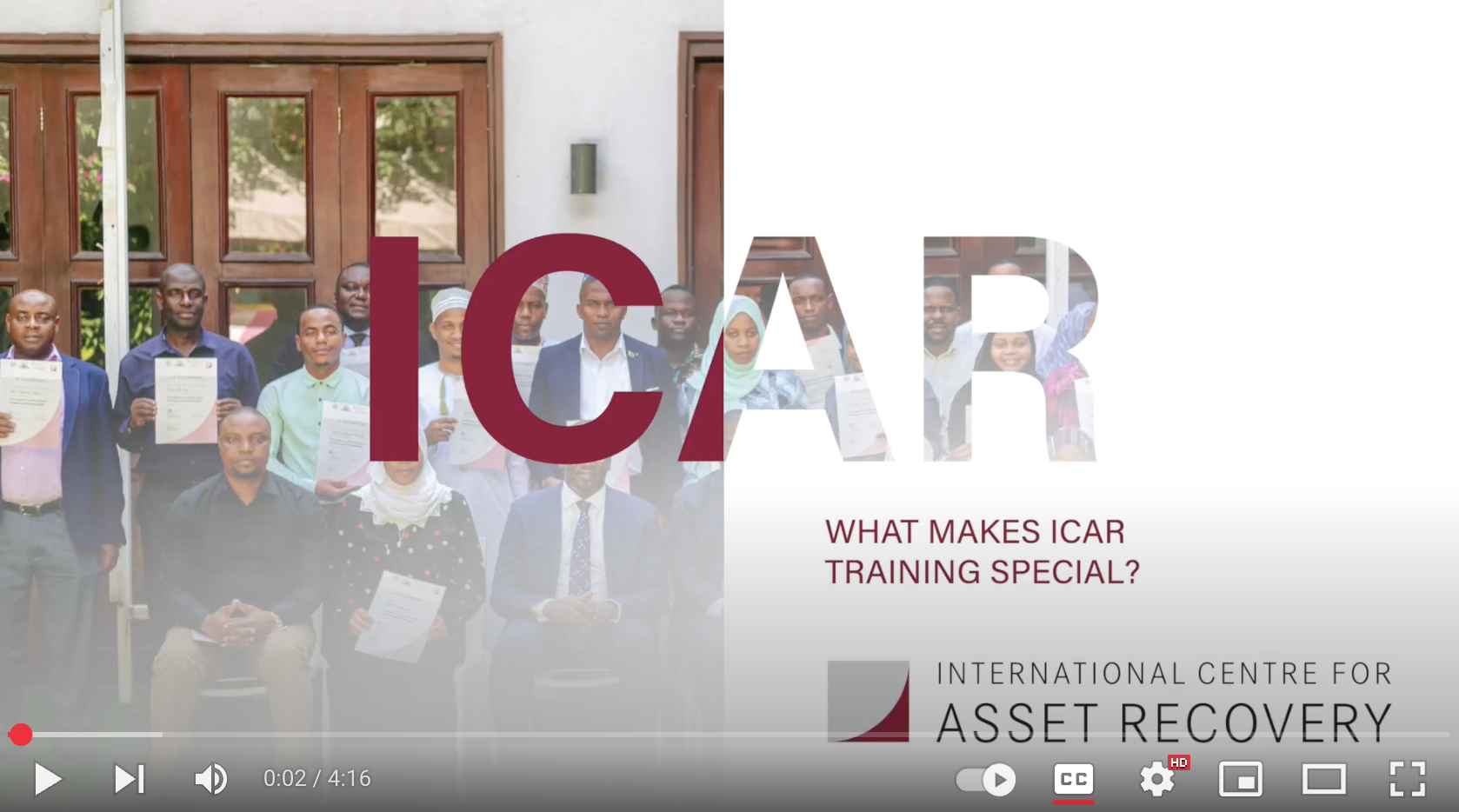It’s official: our training drives meaningful change

Training and related capacity-building assistance of our International Centre for Asset Recovery (ICAR) are: “driving meaningful shifts within the institutions of partner countries, and enhancing their effectiveness in addressing corruption and related crimes”.
That is the conclusion of an independent qualitative study by Fondazione Safe, based on interviews with training participants in Africa and Europe. The in-depth report confirms the effectiveness of our training team’s approach, shown in brief in this video:
Relevant and practical skills lead to results
The independent survey shows that by equipping participants with practical skills and tools relevant to their everyday challenges, ICAR courses make a “significant” and “broad” impact on their work.
Interviewees noted improved skills in financial investigations and in prosecutorial and law enforcement strategies. They also highlighted their improved ability to collaborate on cases with other agencies and to respond to requests for cross-border cooperation.
This has led to tangible outcomes. For example:
- One law enforcement officer described using their improved skills in evidence gathering to link a vehicle involved in illegal cross-border trafficking to the crime. The vehicle was successfully confiscated.
- Another participant used the “follow the money” principle underlying the training to identify a corruption scheme involving public officials who were hiding bribes behind figureheads – leading to a successful resolution of the case and recovery of misappropriated assets.
The multiplier effect
The impact of ICAR training courses goes beyond individual participants. Participants tend to share their newly acquired knowledge with colleagues or counterparts from other agencies and organisations.
Sometimes this happens through formal channels, like written summaries and presentations by trainees. Often it’s more informal: through asset recovery taskforces, inter-agency commissions, or simply by helping out colleagues with their cases.
The report estimates that for every participant of an ICAR course, new knowledge and skills reach 8–15 additional practitioners.
Ultimately, this “multiplicative” transfer of skills has resulted in the collection of higher-quality evidence for use in court, and an enhanced ability to effectively combat crime and recover assets.
Lasting collaboration and knowledge sharing
The collaborative nature of ICAR training courses has also fostered enduring professional knowledge sharing and inter-agency collaboration.
The group activities and exercises that are integral to ICAR training programmes require extensive interaction and problem solving in inter-agency teams. This helps participants build trust and establish new relationships.
These relationships last. Many interviewees reported regular communication, for example, to initiate and follow up on cases, to seek technical advice and to make requests for information. They said that these informal communication channels are crucial for speed and efficiency.
Interviewees also report sharing insights and updates on evolving methodologies and best practices, and seek advice or support on challenging cases. This is a vital boost to their individual and institutional capacities.
So what?
Thierry Ravalomanda, who leads the ICAR Training Team, commented that:
“We are encouraged by the report’s key finding that our partner countries are demonstrating more successful prosecutions and recovery of assets as a result of our training. That means real progress in sanctioning and deterring serious financial crimes, including corruption, and strengthening the rule of law.
As well as being a testament to the effectiveness of our methodology developed over the years by Tom Lasich, Phyllis Atkinson and others, it also reinforces the role of training in ICAR’s overall approach to building capacity for financial investigations and asset recovery. Where possible, we combine intensive skills-focused training with hands-on mentoring by expert advisors on real cases. That combination is what really leads to long-term and meaningful progress.”
Learn more
- See ICAR’s training programmes and download brochures in English, Spanish, French and Portuguese.
- Looking for individual, self-paced learning? Check out our free eLearning courses on Basel LEARN.
- Coming soon! Look out for our upcoming continuing education programmes with the University of Basel, including a specialised postgraduate programme on countering financial crimes and recovering assets.


